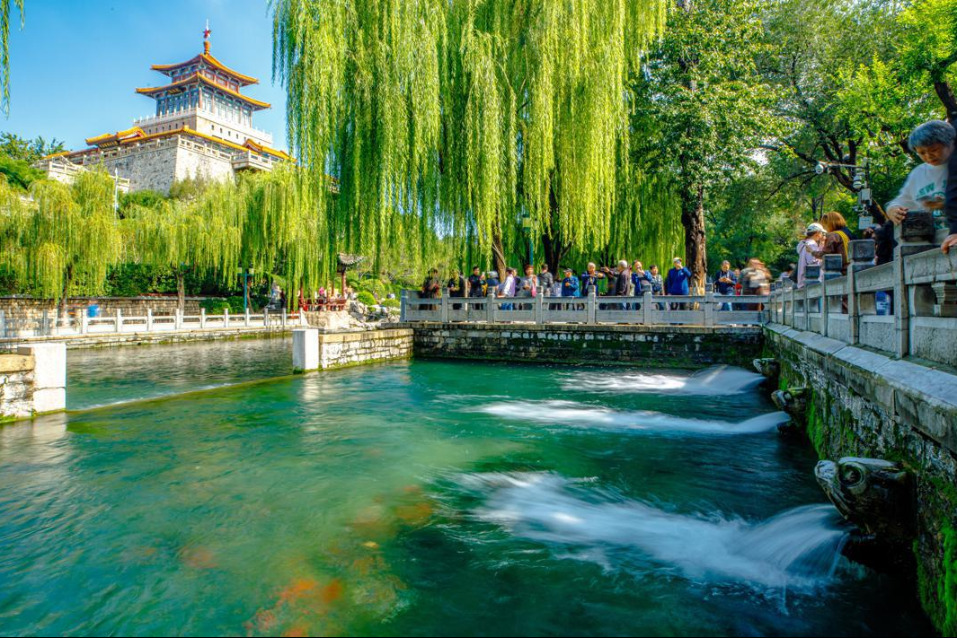Intl experts highlight China's anti-corruption efforts relevant to modern governance

BEIJING -- How can corruption -- the notorious "cancer" of governance -- be more effectively curbed within and across borders in today's globalized world? What is China doing right in its anti-corruption campaign?
International experts discussed these questions during a session on the role of political parties in modernization and anti-corruption at the Tongzhou Global Development Forum 2025, which concluded Saturday in Beijing.
He Li, deputy secretary of the Party committee and secretary of the commission for discipline inspection of Renmin University of China (RUC), pointed out that corruption is a global governance challenge that every nation faces and must be eradicated as a societal poison, as it could stifle economic progress, distort competition, and weaken the very foundations of governance.
In this regard, China has a deep understanding of how misconduct and corruption are intertwined and interrelated, stemming from the same root, said Fan Jihai, vice-president of the China Academy of Discipline Inspection and Supervision.
With this in mind, Fan said China's anti-corruption efforts focus on addressing misconduct early on, particularly by eliminating unnecessary formalities, bureaucratism, hedonism, and extravagance, to prevent them from escalating into corruption.
Since 2012, the CPC has spearheaded an unprecedented anti-corruption campaign. A key highlight is the introduction of a code of conduct, known as the eight-point rules, to improve officials' conduct.
The code later evolved into a consistent, Party-wide measure to curb tendencies that risk alienating the Party from the people.
This anti-corruption storm has swept every corner of public office. Some of the most senior officials have been brought to justice.
Speaking of the crackdown on corruption, Esteves Carlos Hilario, member of the political bureau of the People Movement for the Liberation of Angola (MPLA), believed it is a daunting task, not only because combating corruption is inherently complex, but more importantly because "it is a task we carry out by ourselves and has direct consequences on ourselves."
After hearing the heated session, Penildon Silva Filho, a central committee member of the Workers Party of Brazil, told Xinhua that he would like to learn more about China's anti-corruption measures afterward, expressing "congratulations" as he was already amazed by China's commitment and effectiveness in these measures.
Indrananda Abeysekara, chairman of the Association for Sri Lanka-China Social and Cultural Cooperation, told Xinhua that he believes other developing nations should also draw from China's anti-corruption efforts.
"Most importantly, we must learn how China integrates these efforts into its governance system," said Abeysekara.
The CPC is also at the forefront of international anti-corruption efforts, strengthening cross-border cooperation on fugitive repatriation and corruption governance, said Zhang Xiaomeng, professor at the Discipline Inspection and Supervision School of RUC.
In an era of economic globalization, corruption has increasingly crossed national borders, becoming a distinctly transnational issue.
Guo Weilu, secretary of the CPC Committee at East China University of Political Science and Law, noted that due to differences in legislative concepts and governance experience, countries have varying goals regarding cross-border anti-corruption cooperation.
"Some Western countries have set up cooperation barriers for developing countries in this area and, in some cases, have even become safe havens for corrupt individuals," said Guo.
For years, China has rigorously adhered to the United Nations Anti-Corruption Convention, signing over 170 treaties and agreements with more than 80 countries, expanding its global network for tackling corruption, according to He.
Last year at the third plenary session of the CPC Central Committee, the Party leadership outlined the plan to enact a law against cross-border corruption.
China has been actively participating in building an international anti-corruption governance system and strengthening its cross-border anti-corruption enforcement, remarked Guo.
- Intl experts highlight China's anti-corruption efforts relevant to modern governance
- Revolutionary Chinese chip to pioneer search for dark matter, black holes
- Cargo plane skids into sea after landing in Hong Kong, 2 dies
- Explainer: What to know about key Party meeting that will shape China's next five-year plan
- Photos on a star trek
- China pioneers digital, green growth




































